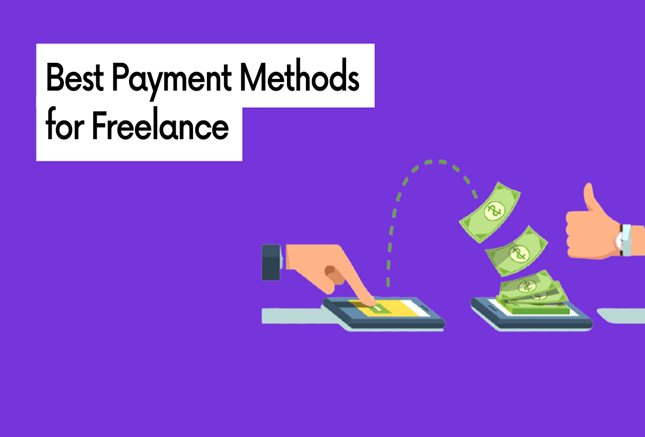So, you’ve had it with working for the Man! You feel you want the freedom of working on your own. Good for you. But be careful what you wish for because successful freelancing is harder than it appears.
Here are 10 tips about the freelancing life that are crucial to keep in mind.
1. Being Your Own Boss Doesn’t Eliminate Having a Boss
News flash: As a freelancer you are still working for someone. Maybe it will no longer be that specific egomaniac in the corner cubicle. But your clients can sometimes be just as demanding and unreasonable — and you still have to please them! So when your key client demands more of your time but doesn’t see any reason to renegotiate the project price, your old boss might not seem like such a bad person, after all. The good part is you’ll have other clients. So if there’s a bad apple in the bunch, you aren’t as stuck as you would be in a regular job.
2. Don’t Work in Your Pajamas
“Get up and get dressed,” advises recruiter and career coach Anne Hubben. “[…] [T]here are times when I check my email while drinking coffee in bed and suddenly it’s 10:00, I’ve accomplished a lot, but I’m still in my pajamas and that can do a number on your sense of self-worth.” Even though you may be home, it’s not time to do the laundry, or clean the house or take a nap or, worst of all, watch TV. It’s time to work. Maintain regular work hours and avoid distractions (okay, it’s all right to take a break and walk the dog). And if those distractions at home are just too, well, distracting…
3. Choose a Work Environment That Works for You
Not everyone wants to work at home (to avoid lonely freelancer syndrome) or an office (expensive),” notes Raj Dash, blogger for FreelanceSwitch. “You might consider using one of the many co-working spaces that are popping in larger towns and cities. They’re less expensive than an office and less lonely than working at home.” No co-working spaces nearby? Many coffee shops and other neighborhood destinations are happy to have you working there. “We cater to freelancers in our cafe all the time,” reports Katie McCaskey of her neighborhood grocery.
4. Become President and Sole Employee of Your Own Company
Trade under a company name, not just Joe Freelancer. “Whether it’s a sideline gig or a full-time consulting concern, if you’re providing goods or services in exchange for payment, you are running a business,” says Entrepreneur writer Lydia Dishman. Clients are more impressed with a branded entity that offers consulting services, as opposed to just some girl or guy trying to get work.
5. Network, Network, Network
The need to network isn’t big news to anyone. But it bears repeating, particularly for freelancers. “Networking should be your #1 concern… Aside from building your own website it’s also a good idea to get out and join some related social networking communities,” says Web designer Jake Rocheleau. “Behance and Dribbble are two examples focused around digital artists. You may be surprised how many people will find you online, and having these profiles on external websites can give more prominence to your name.”
6. Do Your Taxes
“If you’re new to freelancing, you may not be aware that you have to pay a self-employment tax in addition to your regular income tax. Unfortunately, being self-employed will cost you extra in terms of taxes,” freelance writer Nadia Jones points out.
She says: “It’s a good idea to put around 25% of each of your paychecks into savings. You’ll need to pay around that much to the IRS when it’s time to do your taxes. If you work in a state with no state income tax, you may be able to get away with saving around 20% per paycheck for your taxes. Look up tax rates in your state and make sure you adjust how much you set aside for taxes accordingly.”
7. Get Healthcare Coverage
Healthcare coverage is expensive. It may be tempting to pass on the expense of heathcare coverage, but that’s a potentially dangerous game of Russian roulette. Freelancers in particular suffer if they can’t work because of unexpected illness or disability. Fortunately, there are ways for you as a freelancer to join groups offering healthcare plans akin to employer-provided benefits.
“Joining a writers union or guild, or an independent contractor’s association, will open up some group health insurance possibilities to you,” notes freelance writer and editor Allena Tapia. “The National Writers Union offers some options (or, in Canada, The Writers Union of Canada). Another option is the National Association for the Self-Employed, which offers free quotes. Some writers also recommend the AvantGuild membership at Media Bistro. Another Guild to consider is the Authors Guild, which offers discounted insurance for published authors in selected states.” Not a writer? Another option is Freelancers Union.
8. Charge by the Hour
Experienced freelancers can quote a project and not wind up working for less than minimum wage. When you’re just starting out, try to negotiate your fee as billed by the hour. You can estimate the hours you might spend, but don’t get locked in to anything fixed.
“Not only does this make quoting easier, but clients understand that they are buying a block of time that you think will be enough to finish the project. They will be more forgiving if you need more hours (versus quoting a project price, which clients will hold you to),” points out freelance website designer Samuel Ryan.
9. Don’t Count on Getting Paid on Time
One of the advantages of using a freelancer over an employee is the company can keep some of its money in the bank longer than having to make weekly payroll. Where the regular employee sees a check every week, or every other week, typical freelance jobs don’t see payment until 30-45 days past receipt of an invoice. Sometimes you can negotiate an upfront fee. Sometimes not. The lesson here is that submitting an invoice doesn’t mean you’ve got this month’s rent money in the checking account.
Here’s a tip. Write your contract so you get half up front and half on delivery. Here’s another tip: Always have a signed contract!
10. Work Through an Agency
One way to avoid the uncertainties of getting paid regularly and estimating work is to get work through a staffing agency. There are a number of agencies that specialize in recruiting and placing creative and IT talent for long- and short-term assignments. One drawback is that in most you’ll have to be a pseudo-employee again. You’ll be expected to show up at a cube for a 40-hour workweek, just the thing you wanted to avoid by going freelance.
On the other hand, you get a weekly paycheck. You still retain some of your independence since you can pick and choose projects. “If you are not thrilled with the assignment or the employer, you can move on to your next position and start anew,” job search and employment expert Alison Doyle points out. Some larger staffing agencies even entice talent by setting up retirement savings accounts, too, after a certain number of billable hours are worked. That’s almost like having your (freelance) cake and eating it, too!
It is possible to be a successful freelancer. Understand that going freelance means you are really building a business. Suddenly, you’ll be expected to do a lot more than the one thing you are selling. So, expect to work more hours, not fewer. Good luck!
Author Bio –
David Soyka has been a freelance journalist for over thirty years, and currently writes for Vistaprint, a leading provider of personalized checks for freelancers across the globe. David’s work has been featured in many business and trade publications, such as Industry Today and Food & Drink Quarterly.





